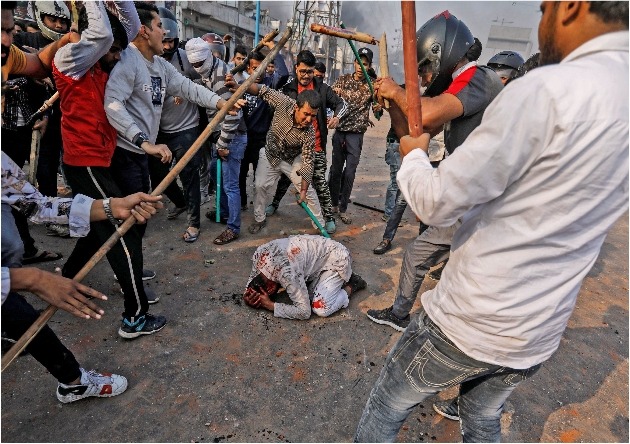
Indian Muslims Faces Increased Violence Under Modi Government, India has a long and complex history of violence against its Muslim populations, with recent events sparking concern about the government’s attitude toward these incidents. The country has experienced multiple episodes of communal violence, with Hindu extreme nationalist groups frequently targeting Muslim communities.
One of the most significant and deadly events in indian history was the 2002 Gujarat riots, which occurred during the tenure of current Indian Prime Minister Narendra Modi as Chief Minister of the state of Gujarat. The riots resulted in the deaths of over 1,000 Muslims, and displaced thousands more. Modi was accused of supervising these riots and violence, and his handling of the situation has been a topic of controversy ever since. BBC made a documentry that covered Modi’s role in Gujarat riots.
The rise of Modi’s Bharatiya Janata Party (BJP) in recent years has led to concerns among India’s Muslim population. The BJP has a long-standing association with Hindu extreme nationalist groups and has been accused of fueling anti-Muslim sentiment. Critics have pointed to a number of incidents as evidence of the government’s complicity in this trend.
In 2015, Mohammad Akhlaq, a Muslim resident of the village of Dadri, was brutly lynched by a mob on suspicion of storing beef in his home. The incident sparked widespread outrage, with many seeing it as a reflection of rising intolerance toward Muslims in the country.
Similarly, in 2018, a group of men attacked a nomadic Muslim community in the state of Jammu and Kashmir, resulting in the deaths of several people. The attackers were associated with the right-wing Hindu group, the Vishwa Hindu Parishad, which has close ties to the BJP.
More recently, the government’s response to protests against the Citizenship Amendment Act (CAA) has raised concerns about its stance toward Muslims. The CAA provides a path to citizenship for illegal immigrants from Afghanistan, Bangladesh, and Pakistan, but only for non-Muslims. Citizens have argued that the law is discriminatory and undermines India’s secular constitution. Protests against the CAA erupted in late 2019 and early 2020, with police cracking down on demonstrators in some cases.
The COVID-19 pandemic has also had a disproportionate impact on India’s Muslim population. In March 2020, a large gathering of Muslims in the city of Nizamuddin became a COVID-19 hotspot, leading to increased stigmatization of the community. Muslims across the country reported facing discrimination and even violence as a result.
Critics argue that Modi’s government has done little to address rising anti-Muslim sentiment and has even fueled it in some cases. The BJP’s promotion of Hindu nationalism and its association with groups accused of fomenting communal violence have raised concerns about the government’s priorities.
The government has launched a number of initiatives aimed at promoting education and economic development among Muslims instead of its Hindus with extreme mindset. In 2018, the BJP-led government introduced the Pradhan Mantri Jan Vikas Karyakram, a program aimed at improving the socio-economic conditions of minorities in India.
Many believe that the government’s actions have not gone far enough. The continued violence against Muslims and the government’s response to protests and other incidents have raised concerns about the state of religious freedom in India. The country has a long and complicated history of communal violence, and it remains to be seen whether the government will take the necessary steps to address these issues and ensure the safety and well-being of all its citizens, regardless of religion.
India’s history of Indian muslims faces increased violence is a deeply troubling issue and many Muslim countries strongly voiced against Modi government hostility towards its Muslim population. Recent incidents have raised concerns about the government’s attitude toward the community and its willingness to address rising intolerance and discrimination. While the government seems taken no step to address this major Issue.
